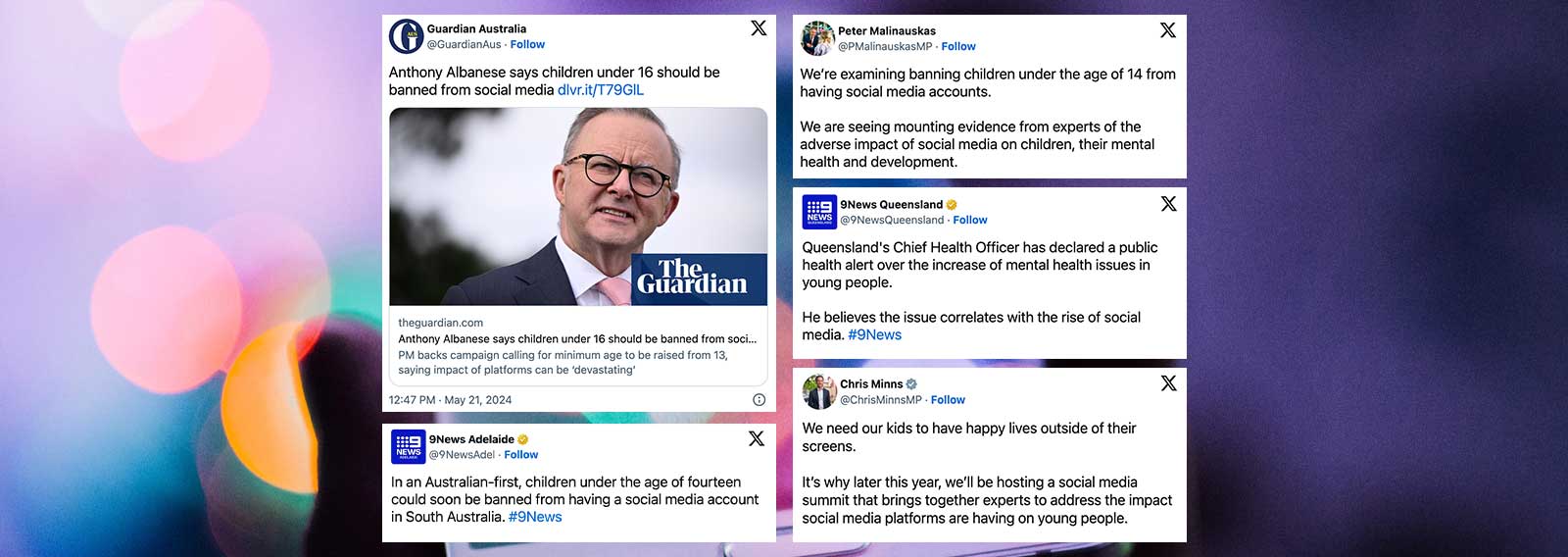Politicians and the mainstream media in Australia appear to be stoking fears of the mental health impacts of social media as a pretext to introduce bans for users 16 years and younger. Apparently, parents simply cannot be trusted to do what’s best for their own children. But never fear incompetent parents, the government is here to lay down some new house rules for your unruly teens.
Are parents in Australia so derelict that it’s not enough to raise awareness of online dangers? Do the federal and state governments really need to inject themselves into the home by writing up legislation that would legally prohibit teens and children from accessing social media? It would appear they just can’t trust parents to act without some sort of threat of legal consequence if they don’t comply.
But who asked for our politicians to tell us how to raise our children properly? We certainly do not need laws policing children on social media, because this is a parenting issue, and parenting is the parents’ jurisdiction, not the state’s.
By all means, raise awareness of the dangers of the internet. Give parents the information they need to make informed decisions about what their kids have access to online. But when the government inserts itself into the home and begins to dictate what things our children can do, what people our children can associate with, what food our children can eat, and what books our children can read, then that’s a whole new danger within itself.
But let’s not imagine this is just about the kids. After all, these are the same politicians, cheered on by the mainstream media, who shut down schools for months and told kids they weren’t allowed to leave their homes or see their friends, the impacts of which are still with us today. These are the same politicians who advocate irreversible “gender reassignment” surgery for teens. And we’re now supposed to believe they’re only thinking about the kids?
Of course, parents should protect their kids online! In fact, my children aren’t using social media until they’re 18 years old! It’s a small gift you can give to your kids. They’ll appreciate it later in life when all of their friends are losing their careers because of some “homophobic” meme they liked when they were 14. But more concerning than that, children ought to be protected from the ever-reaching, power-grabbing cold arms of intrusive politicians who can hardly manage their own private lives, much less dictate what’s best for the rest of us.
Surprisingly enough, politicians making more laws to police the public isn’t the answer to our social ills. More often than not, it’s a cover for incompetence or else a means by which politicians can further a particular agenda. In this case, a ban on teens using social media is more likely the trojan horse in which they’ll smuggle a legal requirement for all social media users to link their social media accounts to a digital identification.
How else are they going to prohibit children from accessing social media? If a child wants to register a social media account, will he simply have to check a box, cross his heart, and promise he’s at the legal age? No. Adults will likely be required to hand over their personal identification with proof of eligibility.
Just like that, online anonymity will be a thing of the past. Big Brother will be watching. Isn’t it funny how the sudden concern for kids just so happens to achieve their previously hoped-for goal of removing a user’s ability to remain anonymous online?
It sounds like something straight out of Communist China, because it virtually is. Chinese social media platforms are now required to display the legal names of influential online users, making it far more difficult to post anonymous content on social media.
Critics of the law argued that anonymity shouldn’t just be associated with illegal or threatening activity. It also affords users the protection they need to speak truth, criticise a government that outlaws disapproval, or simply voice an opinion they couldn’t share with family, friends or work colleagues.
The Chinese government argued that the new rule would help to prevent online harassment and misinformation. Sounds familiar, doesn’t it?























